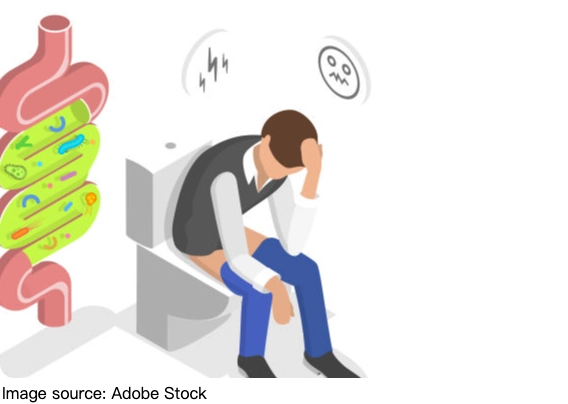Stress & Stomach Pain Link

Stress affects the body in numerous ways, and one of the most commonly overlooked consequences is its impact on the digestive system.
While many individuals may experience occasional stomach discomfort during stressful periods, chronic stress can lead to more serious digestive issues.
Recent studies have begun to shed light on the biochemical mechanisms that link stress to stomach pain, and how this relationship can be better understood and managed.
The Biochemistry of Stress and Its Effect on Digestion
When the body is under stress, it triggers a complex physiological response known as the "fight or flight" response. This involves the release of hormones such as cortisol and adrenaline, which prepare the body to respond to perceived threats. While this response can be helpful in short bursts, prolonged stress can lead to an imbalance in these hormones, which can negatively affect the digestive system.
According to Dr. Emeran A. Mayer, a gastroenterologist and neuroscientist renowned for his work on the brain–gut axis, emphasized "Psychological stress can affect autonomic and enteric nervous system function, leading to altered gut motility, sensitivity, and secretory responses—often mediated via CRF pathways that become dysregulated in IBS and related disorders."
The Role of the Gut-Brain Axis
The connection between stress and stomach pain is not only a one-way street. The gut and brain communicate constantly through a network of nerves, chemicals, and hormones. This is known as the gut-brain axis, a bi-directional pathway that allows stress and emotional states to influence the gastrointestinal system, and vice versa.
A research highlights how stress can alter the gut microbiome, leading to an imbalance in the bacteria that reside within the digestive tract. According to Dr. John Cryan, a neurogastroenterologist, "Chronic stress significantly alters the gut microbiome, reducing beneficial bacterial species and contributing to gastrointestinal discomfort such as bloating and abdominal pain."
Stress and Gastric Function: A Closer Look
The stomach's ability to process food efficiently can be disrupted by stress in several ways. First, stress can increase the production of stomach acid, which may lead to acid reflux or heartburn. According to Dr. Pothuri, a gastroenterologist in Houston, explains, "Stress can change your stomach acid levels and slow digestion… This reaction can worsen reflux and cause new symptoms."
Additionally, stress can alter the gut's motility—its ability to move food through the digestive tract. As a result, some individuals experience delayed gastric emptying or, conversely, an overactive digestive process. These issues can contribute to discomfort such as nausea, bloating, and cramps.
Psychological Factors and Stomach Pain: The Mental Side of the Equation
It is important to note that the mind plays a significant role in how stress impacts the stomach. Anxiety, for example, can heighten sensitivity to stomach pain, amplifying symptoms of conditions like IBS and functional dyspepsia. Studies suggest that individuals with high levels of anxiety tend to experience more intense abdominal discomfort due to heightened perception of pain signals in the gut.

Managing Stress-Induced Stomach Pain: Strategies for Relief
While the connection between stress and stomach pain can seem overwhelming, there are several methods available to manage both the emotional and physical symptoms.
Mindfulness and Meditation: Engaging in mindfulness exercises has been shown to reduce the production of stress hormones, such as cortisol, and improve the balance of the gut microbiome.
Dietary Adjustments: Eating a balanced diet rich in fiber, probiotics, and gut-friendly foods can support a healthy microbiome and alleviate digestive discomfort. Avoiding irritants such as caffeine, spicy foods, it can help reduce stress-induced acid reflux and bloating.
Cognitive Behavioral Therapy (CBT): For individuals with chronic stress, CBT has proven effective in managing both the psychological and physiological aspects of stress. This therapy helps individuals reframe negative thought patterns that contribute to anxiety and stress, potentially reducing stomach pain.
Physical Exercise: Regular physical activity is another proven method for managing stress and improving digestive health. Studies have demonstrated that exercise can increase gut motility and reduce inflammation, offering relief from stress-induced gastrointestinal issues.
The connection between stress and stomach pain is complex, involving both biological and psychological components. Understanding the mechanisms behind this link is essential for developing effective treatment strategies. With a holistic approach that combines stress management techniques, dietary changes, and therapy, individuals can take control of their digestive health and break free from the cycle of stress-induced stomach pain.


